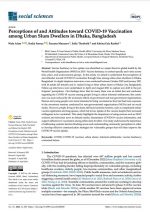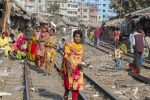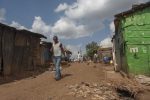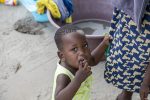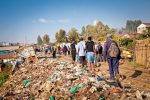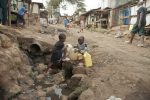Worldwide, infrastructure expansion and visions of ‘slum-free cities’ displace people living in informal settlements. Without community participation in these processes and accountability mechanisms in place’ such displacement can adversely impact people’s health and well-being. This piece outlines SPARC’s (Society For Promotion of Area Resource Centres, SPARC is an NGO based in India promoting action of […]
Introduction One of the major challenges that persons with disabilities (PWDs) are facing globally is unemployment. The challenge is attributed to systems that are not built with inclusivity in mind by employers. As such, the work of inclusion is not inviting PWDs to do more but to make a difference through social support. Most research […]
Abstract Vaccine hesitancy or low uptake was identified as a major threat to global health by the World Health Organization (WHO) in 2019. Vaccine hesitancy is context-specific and varies across time, place, and socioeconomic groups. In this study, we aimed to understand the perceptions of and attitudes toward COVID-19 vaccination through time among urban slum […]
Abstract Slums and informal settlements have long been a policy concern, particularly in post-independence cities of the global South. Although national and local governments devise public policy seeking to address these habitations, these policy initiatives occur in conversation with the often far less visible global policy discourses of international urban development actors. Positing their ideational […]
Abstract Empirical evidence suggests that the health outcomes of children living in slums are poorer than those living in non-slums and other urban areas. Improving health especially among children under five years old (U5y) living in slums, requires a better understanding of the social determinants of health (SDoH) that drive their health outcomes. Therefore, we […]
Abstract The complexity of issues addressed by research for development (R4D) requires collaborations between partners from a range of disciplines and cultural contexts. Power asymmetries within such partnerships may obstruct the fair distribution of resources, responsibilities and benefits across all partners. This paper presents a cross-case analysis of five R4D partnership evaluations, their methods and […]
Abstract Catalyzing change and promoting sustainable cities in informal settlements and their residents requires an understanding of unmet needs and resilience among marginalized and vulnerable groups (MVGs). This is because needs identified on behalf of MVGs as “unmet” are sometimes not perceived as unmet, or even “meetable”, and resilience strategies from above are often perceived […]
Background Accountability strategies are expected to enhance access to water, sanitation and hygiene (WASH) service delivery in low-and middle-income countries (LMIC). Conventional formal social accountability mechanisms (SAMs) for WASH service delivery have been inadequate to meet the needs of residents in informal settlements in LMICs. This has prompted growing interest in alternative informal SAMs (iSAMs) […]
Introduction A range of community engagement initiatives to advance health and wellbeing are currently taking place in informal settlements in low and middle income countries (LMICs), including community and stakeholder meetings, use of radio, film, TV programs and other information, education and communication materials (IECs) organized by different stakeholders. While these initiatives tend to focus […]
Abstract Social accountability for water, sanitation and hygiene (WASH) services is a critical component to realising child rights to WASH services by the urban poor, more so in childcare centres. Despite the existence of discrete social accountability mechanisms (SAMs) in informal settlements, informal SAMs rarely form part of strategic approaches to addressing social accountability challenges […]


